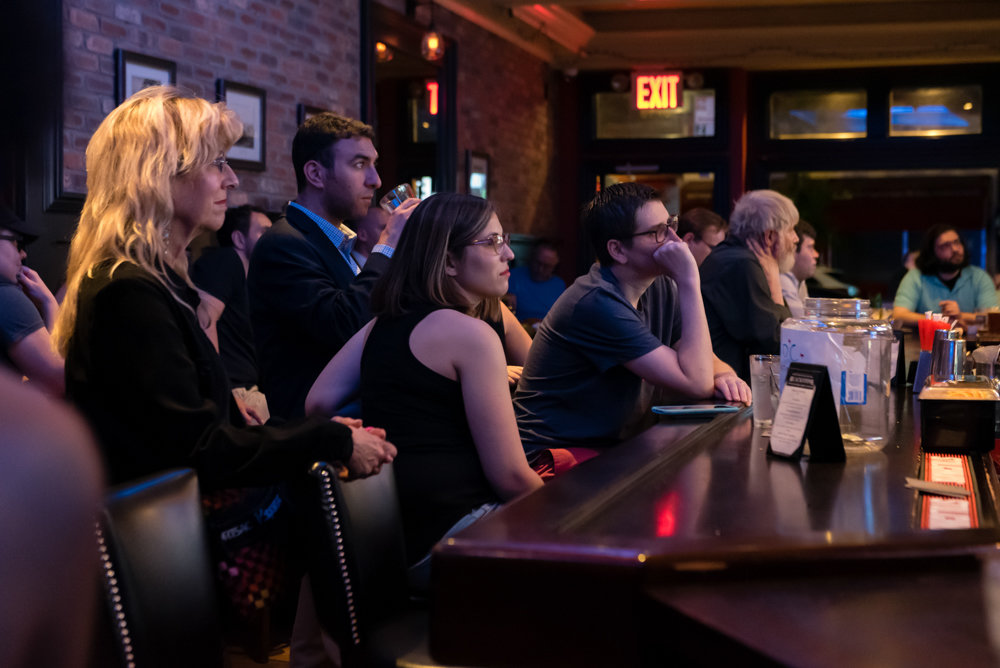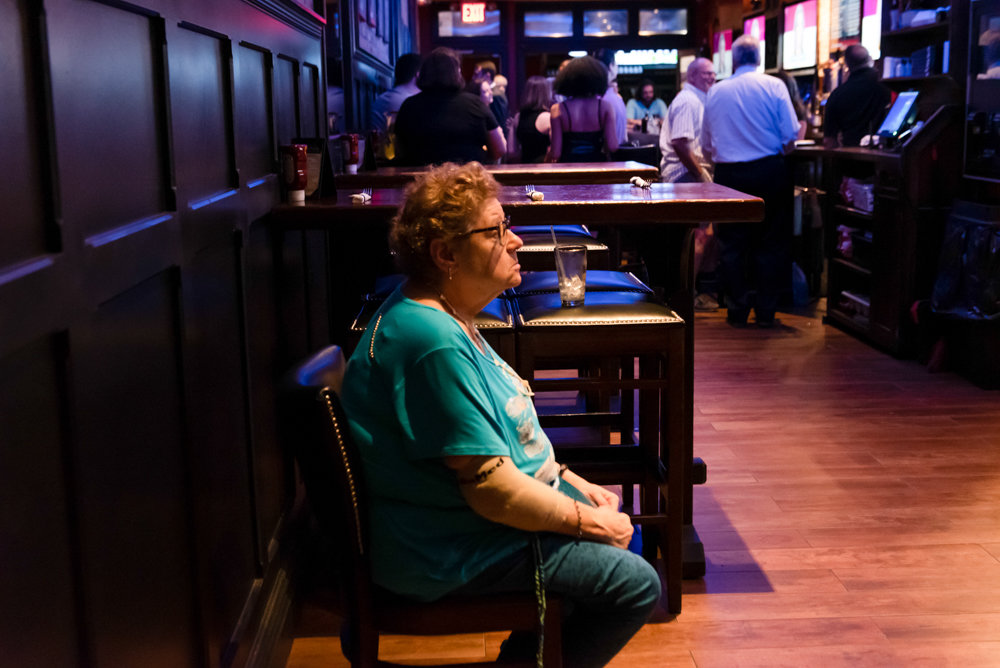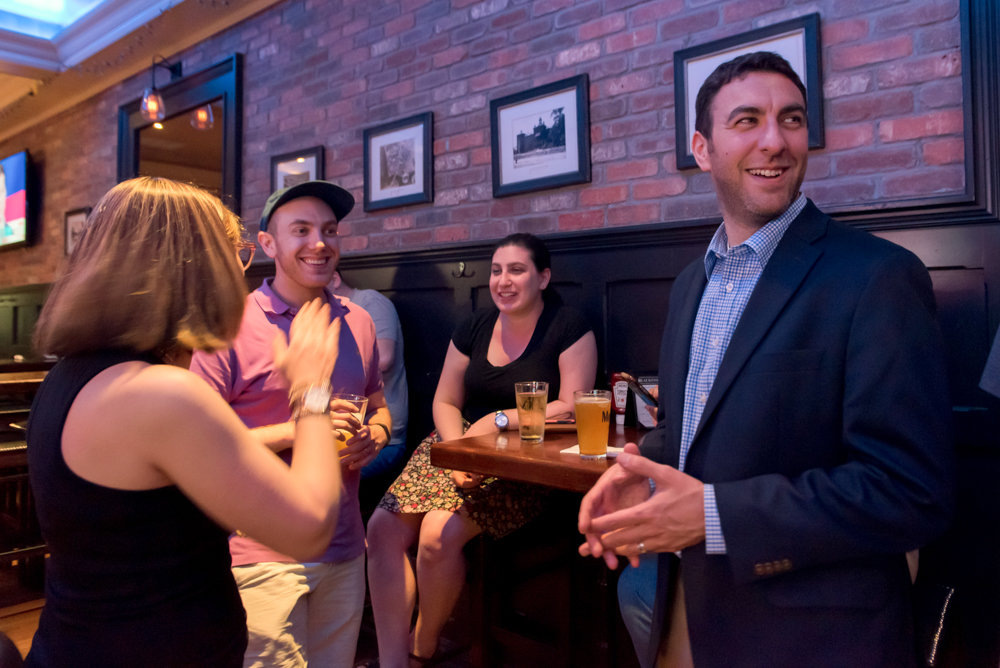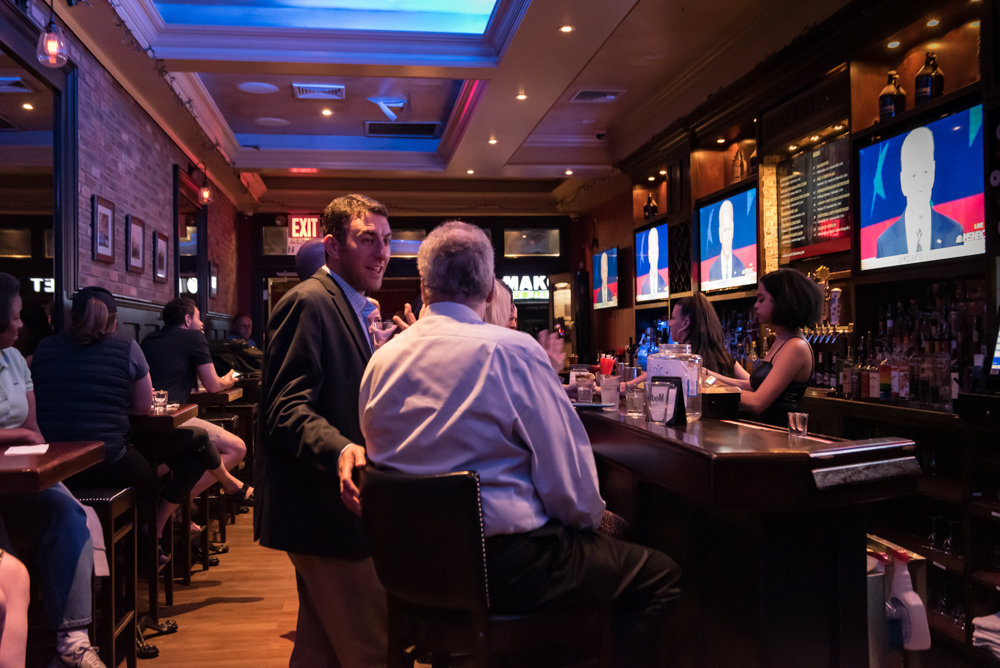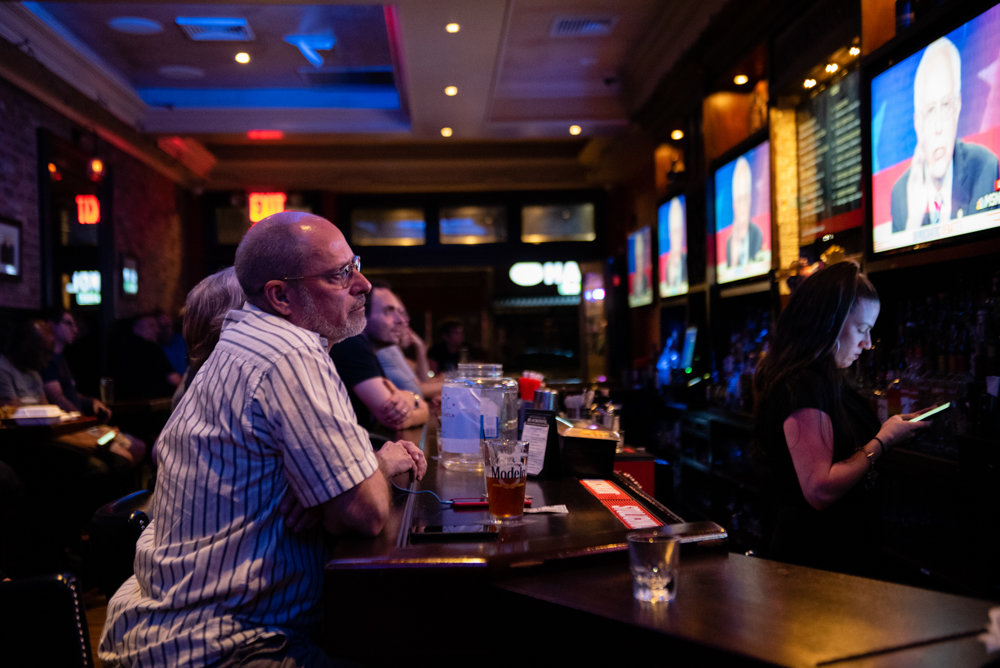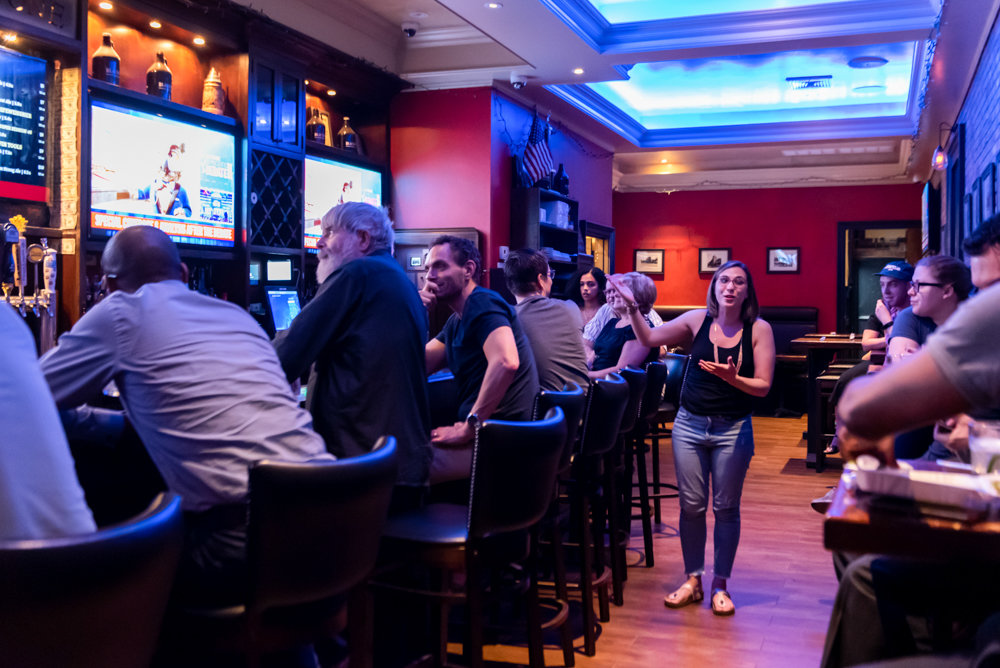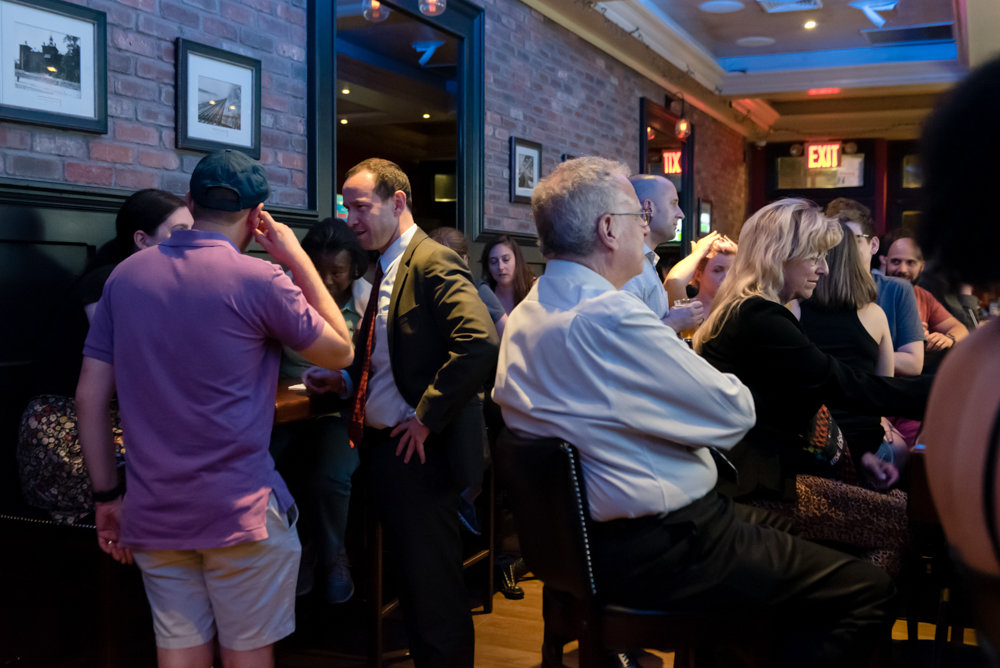Local Dems seek new path for party
As the candidates for the Democratic presidential nomination duked it out on live television last week, the Benjamin Franklin Reform Democratic Club watched on.
Much like the national party, the club synonymous with Democratic politics in the northwest Bronx for the last 50 years is evolving and evaluating the role it will play with the 2020 election cycle already begun. The club saw an influx of new members since the 2016 presidential election and last year’s local Democratic primary.
Despite — or perhaps because of — the club’s contentious endorsement of former state Sen. Jeffrey Klein in 2018, a number of Alessandra Biaggi supporters have joined the club, even making their way into positions of leadership. Morgan Evers and Aaron Stayman, co-chairs of the club’s tech committee, were Biaggi volunteers who joined the Ben Franklin Club last year.
On June 27, the two organized a debate watch party at Blackstone Bar & Grill on Riverdale Avenue.
“The Democratic Party in the Bronx is changing and the club wants to be a part of that,” Evers said.
Evers first joined last November. In the months since, the Ben Franklin Club has made an effort to diversify its member rolls and better represent the people and viewpoints of the 81st Assembly District, she said. The watch party focused on the televised debate featuring candidates like former vice president Joe Biden, Vermont senator Bernie Sanders and California senator Kamala Harris. Yet, no one candidate dominated members’ preferences.
“We’re not going to exclude anybody,” added Evers, who admits she’s a fan of Massachusetts senator Elizabeth Warren. “Unless they’re running as a Republican. Then we are going to exclude them.”
The event was featured in The New York Times as a spot for city Democrats to watch the debates. Assemblyman Jeffrey Dinowitz, a longtime club member, sat at the bar for most of the second hour. Andrew Mutnick, former chief of staff to Alessandra Biaggi, nursed a drink nearby.
The average age of attendees was seemingly a bit younger than a typical club meeting, in part thanks to a new generation of politicians like city council candidates and club members Eric Dinowitz and Dan Padernacht. Michael Frishman, the 37-year-old Democratic nominee for a seat on the Bronx civil court, also was in attendance.
Evers and Stayman described the debate night shindig as emblematic of the change the Ben Franklin Club is going through as it expands its footprint and adds new members. Club leadership, they say, made a concerted effort to welcome new members, and transition from what was a hostile primary environment last year when some Biaggi supporters claimed their voices were not being heard when it came time to endorse.
“A lot of people are really tied to the traditions of the club, but I also feel like there’s an embrace of change,” said Stayman, who joined in June 2018 and now serves on its executive board. Until Biaggi’s victory, the club was Klein turf. Now, “I feel like there’s definitely been an olive branch extended.”
Over its half-century history, the club has become intertwined with the party establishment in the Bronx, particular as the elder Dinowitz accumulated power. Bronx Democrats political director Daniel Johnson was once a club president and currently serves as a vice president.
But as anti-establishment fervor upends Democratic machines in the city’s outer boroughs, the Ben Franklin Club is making an effort to be more inclusive and serve as a forum for a wide range of views in the Democratic Party.
Mike Heller joined the club in the early 1970s, shortly after the re-election of Richard Nixon. Since then, he’s served several terms as club president. During his current stint as the club’s leader, he oversaw the endorsement vote for the 34th Senate District race last year and the club’s transition after Biaggi defeated Klein.
“There were certainly discussions where there was a contentious tone among different factions, there’s no point in sugar coating that,” Heller said. But lately, the club has settled into an electorally quiet year without “a lot of name-calling and finger-pointing.”
The club spent the first six months of 2019 holding informational sessions on issues being debated in Albany and inviting elected officials to speak. The summer months will likely be quiet, but the fall will bring new activity ahead of the April presidential primary and the June state and federal primary.
The Ben Franklin Club organized phone banking and at least one bus trip to an upstate district in the push to retake Congress and the state senate in 2018. But club recording secretary Betsey Knapp hopes the political organization will engage in even more activism leading up to the 2020 elections. Knapp is the co-founder of Northwest Bronx Indivisible and is one of the Ben Franklin Club’s highest-ranking Biaggi supporters from last year’s primary.
“Just like we helped upstate New York get rid of Faso, we can help sway Pennsylvania” in the 2020 presidential election, Knapp suggested. In 2018, the club campaigned for Antonio Delgado in a congressional district outside Albany, helping him defeat incumbent Republican John Faso.
In the meantime, the Ben Franklin Club is working on improving its online presence. Evers and Stayman have been tasked with creating a new website that will launch later this summer with the hopes of boosting the club’s social media presence to drive online recruitment.
“We always want more members to join and we want to be as accessible to as many people as possible,” Evers said.
More voices may mean more debates, but Evers thinks that’s good for the club and the party.
“Everyone who has an opinion, and is a Democrat,” she said, “is welcome to come.”

